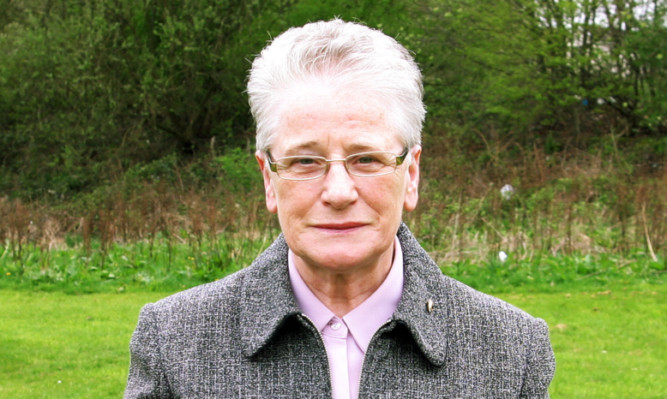Health officials were accused of putting lives at risk after refusing to reveal which hospitals in Fife were linked to a deadly new form of the Clostridium (C diff) superbug which has killed three people.
NHS Fife have confirmed that three deaths linked to a deadly new strain of the hospital-acquired C diff superbug had occurred in Fife.
However, the board refused to reveal which hospitals in Fife were linked to the health scare which has led to health officials across the globe being put on alert.
Confirmation of the Fife deaths came as the chairperson of the Scotland Patients Association said it was “morally wrong” for the public not to be told by the authorities where the three patients have died and warned that the silence could be putting other lives at risk.
It emerged earlier this week that three patients in Scotland have died after catching the ribotype 332 strain of the C diff bacterial infection.
All three were in the same health board area and two of the patients were in the same hospital.
Health Protection Scotland (HPS) said the deaths were the first reported cases of the new C diff strain in the UK and worldwide and that health officials had been put on alert.
The first two cases emerged in December 2012 and January 2013 and the third was identified in another hospital last month.
It was reported that the board involved are NHS Fife, who have two main hospitals the Victoria in Kirkcaldy and the Queen Margaret in Dunfermline.
And NHS Fife confirmed in a statement that three C diff cases from within the health board area and recently reported to Health Protection Scotland (HPS) have been found to have a previously unidentified sub-strain as reported by the agency earlier this week.
Medical director Dr Gordon Birnie said: “Like all boards we report cases of C diff to Health Protection Scotland (HPS).
“In addition, we have clear and open internal reporting systems through our clinical governance committee and routinely report health associated infections (HAIs) to the NHS Fife Board. This was last done at the health board meeting on 30 April 2013.
“As part of the reporting to HPS, a previously unidentified sub-strain of C diff has been identified.”
“Samples were routinely submitted to the national reference lab and when results came back showing a new ribotype, HPS were notified immediately. As HPS has already stated, this strain does not change the existing level of risk to the public from C diff and there are no additional precautions or areas of concern.”
“NHS Fife has a process of reviewing all incidents of C. diff. As we are legally bound to protect patient confidentiality, we are unable to comment further.”
An HPS statement said:”This strain does not change the existing level of risk to the public from C.diff and there are no additional precautions or areas of concern which would require this information to be publicised.”
NHS Tayside declined to make any comment.
Margaret Watt, chairperson of the Scotland Patients’ Association, said it was “morally wrong” for the authorities not to come clean on which hospitals were affected.
She said: “They seem to forget that people in Great Britain are the stakeholders. In other words, the public are their employers. To withhold such information only leads to more suspicion. They should be upfront with people because it’s morally wrong not to be.”
“I know they do care, but unless they educate the public on the importance of always washing hands when visiting hospitals or not sitting on beds during visiting hours, then we’re going to have more of these cases. The only way we can educate is by telling people where the problem lies.
“I understand they do not want to stampede the herd, but they’ve already done that by not telling the public. We want to eradicate this before it really gets out of control. Otherwise, they are leaving the public open to risk.”
Fife MSP Willie Rennie said: “I spoke to John Wilson, the chief executive of NHS Fife, regarding the sad cases of C diff deaths from Fife. I now understand his reluctance to reveal which hospitals are involved as it may then be possible to identify the individuals involved. Fife is a small place and families and patients deserve privacy.”
